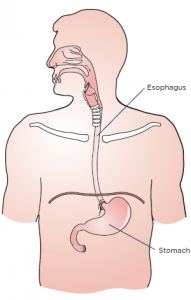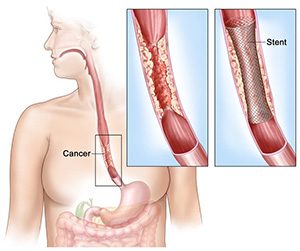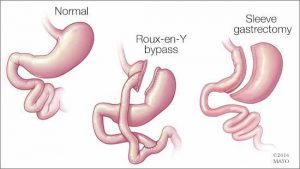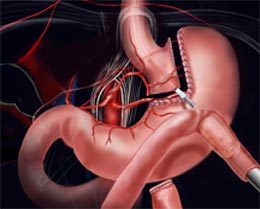CALL TODAY 646-846-1136 | EMAIL
Surgical Experts Dedicated to Improving Lives
At Lenox Hill Surgeons, our dedicated team of nyc surgeons and medical professionals provide compassionate care with the highest ethical & professional standards. In our state of the art facility, we offer surgical services using only the most cutting edge and current procedures and treatments.We specialize in general surgery, including extensive experience in performing hernia repair surgery. Our expertise is in minimally invasive surgery and robotic surgery. Minimally invasive and robotic surgery often allow patients to experience easier recovery than traditional open surgery. They also allow for more precise and less traumatic surgery. When robotic and minimally invasive surgery is not an option, we are also skilled and experienced in traditional open surgical procedures.
All of our doctors are experienced and skilled surgeons having undergone extensive training in school, residency and fellowships. They all practice medicine with ethical behavior, compassion and superb bedside manner. In the operating room they all exhibit precise mechanical abilities, analytical thinking and the ability to visualize tissue in three dimensions. These innate and learned skills allow our surgeons to be some of the most dexterous and skilled professionals in all of New York City and the Country.
Call us: 646-846-1136
About The Surgeons
PATIENT TESTIMONIALS
Recent Awards
We are honored and deeply appreciative to have consistently received prestigious awards and recognition year after year, establishing us as one of New York’s foremost hospitals for a wide range of general surgeries, safety measures, specialized procedures, and overall excellence in healthcare. At Lenox Hill Surgeons, our unwavering commitment lies in delivering exceptional care and unwavering support to our patients, guaranteeing their safety and successful recovery throughout their entire surgical experience.
Hospital Quality Awards
 America’s 50 Best Hospitals Award™ (2023, 2022)
America’s 50 Best Hospitals Award™ (2023, 2022)
Top 1% in the nation for providing the highest clinical quality year over year.

America’s 100 Best Hospitals Award™ (2021)
Top 2% in the nation for consistently delivering clinical quality year over year.

America’s 250 Best Hospitals Award™ (2023, 2022, 2021)
Top 5% in the nation for consistently delivering clinical quality.

Patient Safety Excellence Award™ (2023, 2022)
Top in the nation for providing excellence in patient safety by preventing infections, medical errors, and other preventable complications.
Specialty Clinical Quality Awards

America’s 100 Best Hospitals for Cardiac Care Award™ (2023, 2022, 2021, 2020, 2019)
Superior clinical outcomes in heart bypass surgery, coronary interventional procedures, heart attack treatment, heart failure treatment, and heart valve surgery.

America’s 100 Best Hospitals for Coronary Intervention Award™ (2023, 2022, 2021, 2020, 2019)
Superior clinical outcomes in coronary intervention procedures (angioplasty with stent).

America’s 100 Best Hospitals for Prostate Surgery Award™ (2023, 2022, 2021)
Superior clinical outcomes in prostate removal surgery and transurethral resection of the prostate.
Click to see all of our Healthgrades best doctors awards


Visit our main website at www.LenoxHillSurgeons.com
Blog Posts are Below:
Monthly Archives: September 2018
Surgery for Esophageal Cancer – General Surgeon NYC
Esophagus Surgery: Steps, Benefits, Side-Effects, Precautions & Prognosis

Esophagogastrectomy or esophagus surgery entails doing away with the entire esophagus (and often a stomach part) for treating esophageal cancer, Barrett’s esophagus, achalasia, esophageal stenosis, and GERD. The thoracic surgeon transforms the remaining section of the stomach into a tubular form serving as the replacement for the excised esophagus. The reconstructed esophagus enables the patient to swallow as he or she was doing before the surgery.
Steps
A surgical team comprising of medical specialists and headed by a thoracic or general surgeon performs esophagogastrectomy. The surgical procedure is usually open-type and is carried out in three separate ways.
- Transthoracic esophagectomy (TTE) is conducted via the chest cavity
- Transmittal esophagectomy (THE) is performed by making incisions in the breastbone and the neck’s left side
- En bloc esophagectomy is performed by perforating the abdomen, chest, and neck
Nowadays, the majority of the esophageal surgeries are done using the minimally-invasive laparoscopic procedure where 5-6 fine incisions are made in the abdomen, chest, and neck. The total number of slits (along with their locations) to be made are decided based on the purpose of carrying out the operation and whether the patient has undergone abdominal or thoracic surgeries on previous occasions.
Regardless of the type or method used, the operation is complex thereby necessitating an extended stay in the hospital. If the metastasis is limited to the esophagus and not spread further, excising the gullet and adjacent lymph nodes might help reverse cancer. Alas, most of the cases are detected at an advanced stage compelling the surgeon to go for a compound surgery.
Benefits
Minimally invasive esophagectomy has proven to be more effective compared to open esophagectomy as the postoperative mortality and morbidity rates related to the former are much lower. There are numerous studies to corroborate the outcomes associated with MIE are better than PE. Some of the likely benefits associated with MIE vis-à-vis PE comprise:
- Ashorter period of hospitalization
- Less painful procedure
- Reduced risk of complications or infections
- Less bleeding (and hence fewer transfusions)
- Speedier return to leading a normal life
Side Effects
Some complications related to esophageal surgery are common to other forms of surgery including but not limited to:
- Stroke and heart attack (while the operation is in progress)
- Shortness of breath
- Anastomotic leaking (low blood pressure, vomiting, surgical wound drainage, increased heart rate, and so on)
- Bleeding
- Pulmonary embolism
Complications or risks particularly associated with esophagogastrectomy (which are somewhat rare) include:
- Acute chest infection
- Pulmonary complications, particularly pneumonia
- An injury or wound to the adjacent organs during the operation
- Leakage at the junction of the conjoined stomach and esophagus
Precautions

The surgeon who will operate will spell out the risks about the surgery as well as the preparations and precautions you to need to take before, after and during the procedure. You’ll have to quit smoking altogether at least before the surgery and possibly afterward as well. You’ll have to abide by the instructions specified by your surgeon once you’re discharged from the hospital.
The precautions that you’ll need to take will revolve around your diets, medications, clothing, personal accessories, and lifestyle.
Prognosis
The quality of life of most patients improves post-surgery, but some complications linger on. Follow-up care in the form of pain management, lung therapy, psychosocial care, and nutritional evaluations are highly recommended by the medic to keep the complications or risks at bay.
Concluding Remarks
Minimally invasive esophagectomy or esophagogastrectomy is evidentially the best form of surgical treatment for patients with esophageal cancer. If you or somebody close to you has been diagnosed with neoplasm of the esophagus, you can contact us to make an appointment with our general surgeon for a consultation.
References
- https://www.uwhealth.org/healthfacts/surgery/4281.pdf
- https://www.cancer.org/cancer/esophagus-cancer/treating/surgery.html
- https://www.ariahealth.org/programs-and-services/surgery/general-surgery/surgery-for-esophagus
- https://www.cancercenter.com/esophageal-cancer/surgery/
- https://www.healthline.com/health/esophagectomy-open#postsurgery
- https://www.cancercenter.com/esophageal-cancer/da-vinci-surgical-system/
- https://www.ncbi.nlm.nih.gov/pmc/articles/PMC4283863/
- https://www.mayoclinic.org/tests-procedures/esophagectomy/about/pac-20385084
- https://www.uwhealth.org/healthfacts/surgery/4281.pdf
- https://www.urmc.rochester.edu/encyclopedia/content.aspx?contenttypeid=134&contentid=154
Stomach Surgery: Gastric Bypass by NYC Top Surgeon
Stomach Surgery (Gastric Bypass): Steps, Benefits, Side-Effects, Precautions & Prognosis
 Gastric bypass is a type of surgical process chiefly carried out for treating a series of lifestyle conditions like type 2 diabetes, hypertension, obesity, and sleep apnea. These conditions more often than not occur concomitantly. The surgery is performed using a laparoscope (an elongated & slim tube featuring a high-resolution camera with intense light at the top) that is popped inside a slit made in the belly.
Gastric bypass is a type of surgical process chiefly carried out for treating a series of lifestyle conditions like type 2 diabetes, hypertension, obesity, and sleep apnea. These conditions more often than not occur concomitantly. The surgery is performed using a laparoscope (an elongated & slim tube featuring a high-resolution camera with intense light at the top) that is popped inside a slit made in the belly.
The laparoscope allows the surgeon to view the entire abdomen to restructure the small intestine to enable food to bypass the duodenum. This rearrangement leads to the body absorbing and assimilating fewer nutrients and calories, thereby enabling you to shed excess flab as well as stay fit and trim in the long run.
Steps
Stomach surgery is conducted in two distinct manners namely, open surgery and laparoscopy or laparoscopic surgery. In open surgery, the surgeon uses a scalpel for cutting open the stomach while in laparoscopy numerous small cuts are made in the abdomen. The end objective of both the types of surgery is to clearly view the digestive organs and the gastrointestinal tract and carry out the operation effectively.
The bypass surgery involves two necessary steps:
 1. The surgeon makes use of staples for sectioning the stomach into two halves: a larger bottom-half and a smaller upper half. The goal is to decrease the stomach’s size-the eventually reduced the volume of the upper section (known as pouch where the swallowed food will settle) will make you consume less, thereby letting you slim down.
1. The surgeon makes use of staples for sectioning the stomach into two halves: a larger bottom-half and a smaller upper half. The goal is to decrease the stomach’s size-the eventually reduced the volume of the upper section (known as pouch where the swallowed food will settle) will make you consume less, thereby letting you slim down.
2. The bypass surgery is performed in the 2nd step. The surgeon creates a notch in the pouch and links the jejunum (the initial part of the small intestine) with the opening. So, whatever you take will pass directly from the stomach’s upper pocket to the small intestine via this aperture, ultimately making you take in lesser calories.
On the whole, laparoscopy is preferred over general surgery as the former is less painful, involves shorter hospitalization and faster recuperation, and risks of infections are also lower.
Benefits
- The Roux-en-Y gastric bypass (the medical term for gastric surgery) results in considerable weight loss provided you fully abide by the instructions
- A good proportion of patients can maintain the postoperative bodyweight even 15-16 years after the surgery
- Optimal use of stored or available energy
- Feeling of fullness after taking a small meal and diminished appetite
Side effects
Like any other surgical procedure, gastric bypass is not without its complications and side effects. The following complications have been observed:
- Gastrointestinal/intra-abdominal hemorrhage
- Venous thromboembolism
- Increased risk of intra-abdominal infections like blisters and peritonitis
- Bowel obstruction
- A hernia
- Dumping of contents into the jejunum more frequently, especially when excessive foods or sugary foods are eaten
- Nutritional deficiencies (deficiency of calcium, iron, zinc, and folate as well as vitamins A, B1, and B12)
Precautions
There are certain precautions you’ll need to take once you’re released from the hospital following your surgery:
- Taking the prescribed medications on a regular basis
- Taking multivitamins, vitamin D, calcium, and vitamin B12 every day
- Taking balanced diets with limited consumption of calories
- Exercising daily for at least half an hour
- Remaining socially active
- Regular follow-up with the surgeon
Prognosis
Majority of individuals who opt for gastric surgery can lose 65% of their excess bodyweight. About 85% of those who undergo gastric bypass are successful in maintaining 50% of the excess weight they lost initially.
Concluding Remarks
Though gastric surgery is a practical solution for getting rid of inordinate bodyweight, the procedure can never be a panacea for obesity. If you wish to keep your weight under check post surgery and lead a fulfilling, healthy life, you’ll need to make lifestyle changes as well as heed dietary and exercise guidelines. To know more about stomach surgery as well as to fix an appointment with our bariatric surgeon, you can send us an email or contact us via phone.
References
- https://bariatric.surgery.ucsf.edu/conditions–procedures/laparoscopic-gastric-bypass.aspx
- https://medlineplus.gov/ency/article/007199.htm
- https://asmbs.org/patients/bariatric-surgery-procedures
- https://www.healthline.com/health/laparoscopy
- https://obesitynewstoday.com/gastric-bypass-success-rate/
- https://www.ucsfhealth.org/education/life_after_bariatric_surgery/
- https://www.acefitness.org/education-and-resources/lifestyle/blog/896/after-gastric-bypass-surgery-are-there-specific-exercise-precautions-i-should-take


















